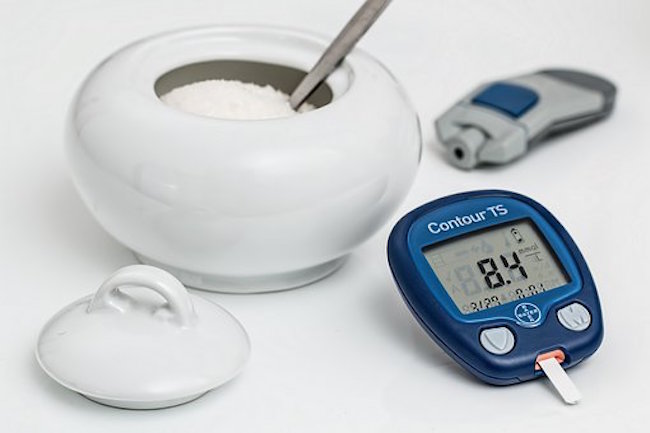Control Your Type 2 Diabetes or Die in TEOTWAWKI by Scott M for Survival Blog
I am a family physician and I have type 2 diabetes. Type 2 diabetes is where you initially have enough insulin produced by your body but are resistant to the insulin, i.e.: you don’t have enough receptors for the insulin to plug into to act on the sugar/carbohydrates you ingest. As time goes on if you don’t manage your diabetes your body will stop producing insulin and you will need to be on insulin shots for the rest of your life. Type 1 diabetes is where you don’t produce any or very limited insulin and have to be on insulin for your lifetime. Type 1 is found almost exclusively in children.
Type 2 is primarily in adults, but it can be found in all ages. Some symptoms of concern that should raise the suspicion of diabetes include constant hunger, extreme thirst, unexplained weight loss, sores or scratches on the skin that either fail to heal or take a prolonged healing time, excessive urination, dry mouth, itchy skin, blurred vision and repeated or difficult to treat yeast infections (either in men or women), difficulty with coordination or train of thought. Having any or a number of these symptoms does not absolutely mean you have diabetes, but it is concerning enough that you should seek testing with your physician to determine whether you have it or not.
Remember: The earlier diabetes is found the easier it can be to treat and the risk for damage to your body is decreased. You can expect your physician to perform some common tests, such as a random blood sugar, fasting blood sugar, a HgbA1c, a urine analysis and possibly a glucose tolerance test. If the testing reveals that you have diabetes your physician will likely start you on oral medications and possibly insulin and refer you to a diabetic educator. Your physician will also arrange for close follow up and repeated lab work to ensure that the treatment course is working and that no additional measures are necessary to control your diabetes.
I found out exactly one month after 9/11 that I had developed diabetes despite history of it in my family. I did have some risk factors that included a sedentary lifestyle (I had episodic exercise but nothing regular), overweight by 20-25 pounds, stressful work schedule and irregular sleep patterns also due to work. My blood sugar was high enough that in addition to being placed on Actos, an oral agent that maximizes the receptors where the insulin your body produces can act on the sugar you eat, I was also placed on regular short acting insulin before meals along with Lantus (a long acting insulin) once per day in the evening. I was determined to gain control of my blood sugar and get off of insulin.
GETTING CONTROL
“Getting control” is medical language for keeping your blood sugar between 80-110 mg/dl (normal range for non-diabetics and optimal range we diabetics aspire to). This is accomplished by controlling your intake of carbohydrates/sugar, exercise to open receptors in your muscles to help metabolize the carbohydrates/sugars you ingest, maintaining or losing weight, cutting back on stress, checking your blood sugar both before and after meals and managing your medications with the help of your physician.
One of the motivating factors is that in a post-SHTF world the availability of insulin in any form will be minimal to non-existent (not to mention that insulin has a rather short shelf life and must be refrigerated). If you have type 2 diabetes that requires insulin (certainly type1) and it is not available you will have a life span that will be significantly shortened.
First, we will address how you control the intake of carbohydrates/sugar. This is not just cutting back on candy/cakes and sweets. Carbohydrates and sugar are found in so much of the food we eat. Simple sugars can be restricted more easily than complex carbohydrates. The totality of this topic exceeds the scope of this article. You will need the guidance of your physician and dietician/diabetic educator for exact recommendations as to your mealtime and snack restrictions. In my case, I keep my total grams of carbohydrates at 45-60 for each meal and 15-20 for any snacks I consume. Of course, there are the occasions where I exceed these restrictions but that is very rare. Just remember that complex carbohydrates are necessary but cannot be consumed cart blanche.




